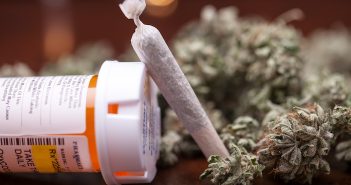Canada’s federal legalization of cannabis and the continued expansion of legal use in the United States have led to an explosion of interest in marijuana investments, this year especially. But the U.S. brokerage firm TD Ameritrade is warning their clients and investors in general to be cautious about legal cannabis stocks. In a video posted on the firm’s YouTube channel in late September, TD Ameritrade highlights the risks and acknowledges the seductive appeal of investing in marijuana. Many who’ve observed the cannabis market’s recent volatility feel TD Ameritrade is offering sound advice. Others say the bullish trends of the market are real and that TD Ameritrade is playing it too safe.
TD Ameritrade Video Warns Investors Against Straying Into The “Wild West” of Cannabis Stocks
Cannabis is rapidly moving from the black market to the stock market. But one investment firm is warning, not so fast. TD Ameritrade is urging investors to be cautious and do their homework before buying stock in cannabis companies. Their reasoning is simple: the market still carries significant risks.
The firm’s video begins with a brief history of legalization in North America. It then presents viewers with an image of the North American Marijuana Index which tracks cannabis companies’ stock prices and market capitalization, showing how the value of the index has nearly tripled since its 2015 inception. In short, the setup makes clear why so many investors are attracted to the cannabis industry. Its potential for growth is undeniable.
Then, the other shoe falls. The video says everything that’s exciting about the cannabis industry also suggests it’s a market bubble. It draws parallels between the cryptocurrency frenzy of 2017, the housing market bubble of 2008 and even the dot.com bubble of the early aughts. The bottom line, TD Ameritrade’s video seems to claim, is that the excitement around the industry is overlooking its uncertain regulatory future. And that leads to extreme volatility and in turn, high risk for investors.
Can TD Ameritrade’s Words of Warning Dissuade Young Investors
Exhibit A in TD Ameritrade’s case against cannabis investing is September’s rollercoaster ride for the Canadian marijuana company Tilray. Tilray was the first Canadian cannabis producer to raise capital through an IPO on the NASDAQ. So when trading went public in July at about $17 per share, Tilray’s stock price shot up to $300 per share by mid-September. But almost as quickly, Tilray gave up those gains. The stock was so volatile, in fact, that the U.S. Securities and Exchange Commission (SEC) halted Tilray’s trading five times in a single day.
The SEC also issued an investor alert on marijuana investments and fraud in early September. And these, TD Ameritrade says, are signs that it may be prudent to hold off on significant cannabis investments until the industry matures. Yet it’s not clear whether investors, especially young ones, will heed the firm’s warnings.
Cannabis stocks are attracting young investors in droves. And it’s not only because legalization a generation-defining issue. Fee-free trading apps like Robinhood and TD Ameritrade’s own platform have made it easier than ever for young investors to buy cannabis stocks online. And they aren’t wrong, according to famous short seller Andrew Left. Left acknowledges that it’s hard to tell the difference between real players in the marijuana sector and fly-by-night scammers. But at the same time, he’s convinced the growth is real and here to stay.
So before you invest, make sure to do your homework. Research any company you’re considering investing in. Look up reports and SEC filings—anything you can find. There are also red flags that should dissuade you from investing. These include SEC suspensions, hyped up press releases and company insiders holding large amounts of stock.















